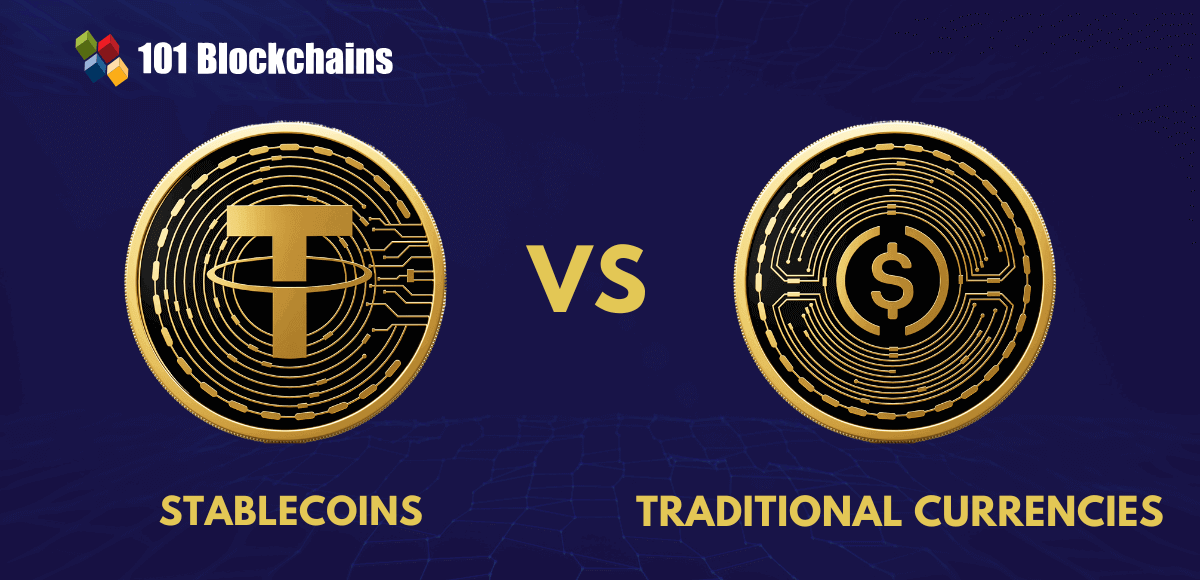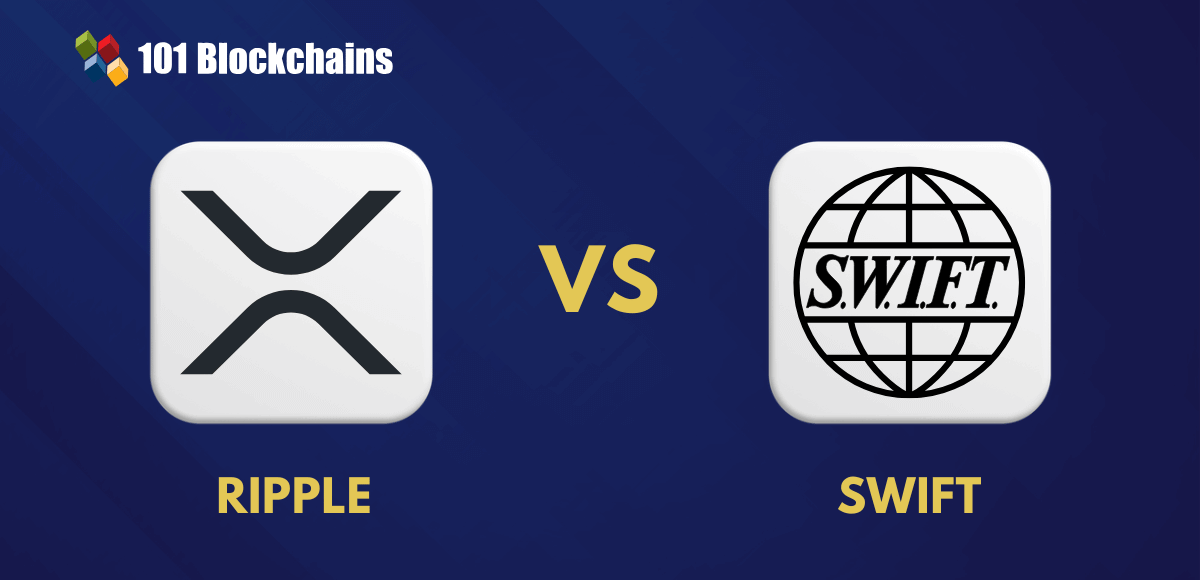Learn how blockchain truly works, master key definitions, and uncover what makes smart contracts so "smart." Dive into the fundamentals, gain valuable insights, and start your blockchain journey today!

- Comparisons
Georgia Weston
- on April 05, 2024
Bitcoin vs. Altcoins: Key Differences
Cryptocurrencies are no longer limited to the tables of tech enthusiasts. The initial fears regarding losing money to cryptocurrency value fluctuations created many doubts in the minds of users. However, the popularity of Bitcoin soared by huge margins in a limited period of time, thereby encouraging more people to pay attention to cryptocurrencies.
Interestingly, the popularity of Bitcoin is one of the reasons for growth in momentum of the Bitcoin vs. Altcoins debate due to the rise of many altcoins. Cryptocurrencies have become one of the major topics in mainstream discussions on finance and have become the frontrunners of a revolutionary change in the financial services landscape. Let us take a look at the differences between Bitcoin and altcoins to find the better alternative among them.
Build your identity as a certified blockchain expert with 101 Blockchains’ Blockchain Certifications designed to provide enhanced career prospects.
Fundamentals of Bitcoin
The first thing you need to learn before comparing Bitcoin with altcoins is the awareness of Bitcoin fundamentals. You can find effective answers to the question, “Is Bitcoin better than altcoins?” by learning about the fundamental identity of Bitcoin. The origins of Bitcoin changed the cryptocurrency landscape and showed that virtual currencies can be decentralized.
Satoshi Nakamoto transformed the conventional notions about money with his new invention in 2009 and provided the foundations for rise of a massive industry. Bitcoin is the first-ever cryptocurrency, and it is still one of the most valuable and recognized digital currencies in the market today.
Bitcoin works through the power of blockchain technology. It offers a public distributed ledger that includes transaction data from everyone using Bitcoin. The Bitcoin blockchain allows addition of transactions to the blocks, which are subsequently linked to a chain of blocks featuring previous Bitcoin transactions.
You can understand the debate on altcoins vs. Bitcoin more clearly by identifying how Bitcoin provided one of the earliest forms of virtual currency based on blockchain. As a matter of fact, the world embraced the concept of blockchain after learning about working mechanism of Bitcoin.
Every transaction on Bitcoin blockchain is verifiable. Bitcoin network also leverages encryption that helps individuals all over the world exchange information and engage in financial transactions. At the same time, Bitcoin opened the doors for anonymous and secure transactions.
The relationship between Bitcoin and altcoins also emphasizes the element of decentralization. Without the governance of a central authority, Bitcoin is free from unwanted influence. Another important trait of Bitcoin is its limited supply, which is fixed at 21 million BTC. As a result, Bitcoin has become a scarce asset, and its value has increased with time.
Enroll now in the Bitcoin Technology Course to learn about Bitcoin mining and the information contained in transactions and blocks
Fundamentals of Altcoins
Bitcoin started a revolution of cryptocurrencies and pushed for the rise of new types of cryptocurrencies, known as altcoins. Any review of Bitcoin and altcoins emphasizes the fact that any type of cryptocurrency other than Bitcoin can be classified as altcoins. Many altcoins have arrived in the market following a fork in the Bitcoin blockchain and other blockchains such as Ethereum. The primary objective of altcoins revolves around resolution of specific issues, such as security limitations and problems with transaction speed.
One of the first examples of altcoins is Litecoin. It was a hard fork of the Bitcoin blockchain network and was formed in 2011. Without the presence of a substantial number of competitors to Bitcoin, the term ‘altcoin’ became the top choice for describing new arrivals in the cryptocurrency market. Apart from Ethereum, many other altcoins made their mark in the industry. Some of the popular examples of altcoins with high market capitalization include Binance Smart Chain and Ripple.
The difference between altcoins and Bitcoin also invites attention to the classification of altcoins into different categories. The most popular variants of altcoins include stablecoins, utility tokens, and security tokens. Each type of altcoin has a distinct functionality and plays a vital role in strengthening the web3 ecosystem. Stablecoins are one of the most popular types of altcoins, which have been pegged to another asset with a fixed value. The most popular examples of stablecoins include USD Coin and Tether or USDT.
Altcoin variants also include utility tokens and security tokens. Utility tokens are used on specific blockchains as payment tokens or for the execution of specific tasks and access to particular features on the platform. On the other hand, security tokens are altcoins that serve as digital representations of physical assets. Security tokens can also represent digital contracts that offer ownership of physical assets such as homes, cars, or stocks.
Excited to know the use cases of crypto in NFTs, DeFi, and the metaverse, Enroll now in the Cryptocurrency Fundamentals Course
Comparison between Bitcoin and Altcoins
The fundamentals of altcoins and Bitcoin provided a brief overview of the differences between them. You can explore the Bitcoin vs. altcoins comparison from many other perspectives. For example, you can compare Bitcoin with altcoins on the basis of their purpose or dominance over the market.
Bitcoin is the most popular and biggest cryptocurrency in terms of market share, closely followed by Ethereum. Altcoins build up the rest of the crypto market. Bitcoin is a well-established alternative for investors and has occupied a larger market share. On the other hand, altcoins might have lower valuations, albeit with expanded scope for innovation and experimentation. Such comparisons between altcoins and Bitcoin can help you determine which one of them would be useful for crypto and web3. Here are some of the notable differences between altcoins and Bitcoin based on different parameters.
-
Market Capitalization and Popularity
The most obvious factors for comparing Bitcoin with altcoins include market capitalization and popularity. You can find answers to the question, “Is Bitcoin better than altcoins?” by reviewing the market capitalization. For Bitcoin, you can find a massive market capitalization ranging beyond $1 trillion.
It is one of the most popular assets among crypto investors. In addition, Bitcoin has gained widespread adoption across the world and can be used to purchase products and services. As a matter of fact, many big companies accept Bitcoin as payment for their products and services.
On the other hand, altcoins have to pass through certain challenges before they reach the level of Bitcoin. The combined market capitalization of altcoins cannot compete with that of Bitcoin. At the same time, altcoins are not as popular as Bitcoin all over the world.
However, it is impossible to write off the potential of altcoins such as Ethereum, Litecoin, and Ripple. You must have noticed how these altcoins have gained traction and substantial improvements in market share in recent times.
Want to get an in-depth understanding of crypto fundamentals, trading and investing strategies? Enroll now in the Crypto Fundamentals, Trading And Investing Course.
-
Purpose
Bitcoin has been tailored as a decentralized virtual currency only. The primary purpose of Bitcoin revolves around ensuring anonymous and secure peer-to-peer transactions. The comparison between altcoins vs. Bitcoin largely focuses on how Bitcoin was created to serve as an alternative to conventional financial systems. On the other hand, altcoins can introduce new and innovative technologies alongside novel functionalities. The purpose of altcoins extends beyond serving as tools for simple transactions.
You can discover more about the element of purpose in a debate between altcoins and Bitcoin using the example of Ethereum. Ethereum serves as a useful tool for creating smart contracts that can go through automatic execution by referring to predefined conditions. On top of it, altcoins can cater to a broad range of use cases with benefits of faster transactions or representation of real-world assets.
-
Technology Foundation
The next crucial point of difference between Bitcoin and altcoins focuses on the technology foundation they use. It is important to note that altcoins and Bitcoin leverage mining as the primary tools for transaction validation and addition of new blocks. At the same time, you must note that altcoins and Bitcoin can have different mining processes and consensus mechanisms.
Bitcoin uses the Proof of Work or PoW consensus algorithm to validate transactions. The Proof of Work consensus demands the use of complex computation resources and intensive energy consumption to solve mathematical puzzles and validate transactions.
The Proof of Work consensus used in Bitcoin serves as a major highlight in the altcoins vs. Bitcoin debate as it creates higher fees and longer transaction times. Altcoins can also utilize different consensus algorithms, such as Proof of Stake, Proof of Authority, and Delegated Proof of Stake. The different consensus mechanisms used by altcoins provide the guarantee for improved scalability, faster transaction times, and lower transaction fees.
Embrace the technological leap and global adoption that awaits in the upcoming bull run of 2024-2025 with Crypto Bull Run Ready Career Path.
Final Words
The relationship between Bitcoin and altcoins shows that both of them are vital for the growth of blockchain and cryptocurrencies. As a matter of fact, altcoins and Bitcoin have a significant influence on the future of the web3 ecosystem. The differences between altcoins and Bitcoins reflect the fact that Bitcoin enjoys more popularity and market share.
On the other hand, altcoins play a crucial role in expanding the use cases of cryptocurrencies and blockchain technology to solve different issues. Learn more about Bitcoin, cryptocurrencies, blockchain, altcoins, and web3 to explore their role in shaping the future of technology.
*Disclaimer: The article should not be taken as, and is not intended to provide any investment advice. Claims made in this article do not constitute investment advice and should not be taken as such. 101 Blockchains shall not be responsible for any loss sustained by any person who relies on this article. Do your own research!





